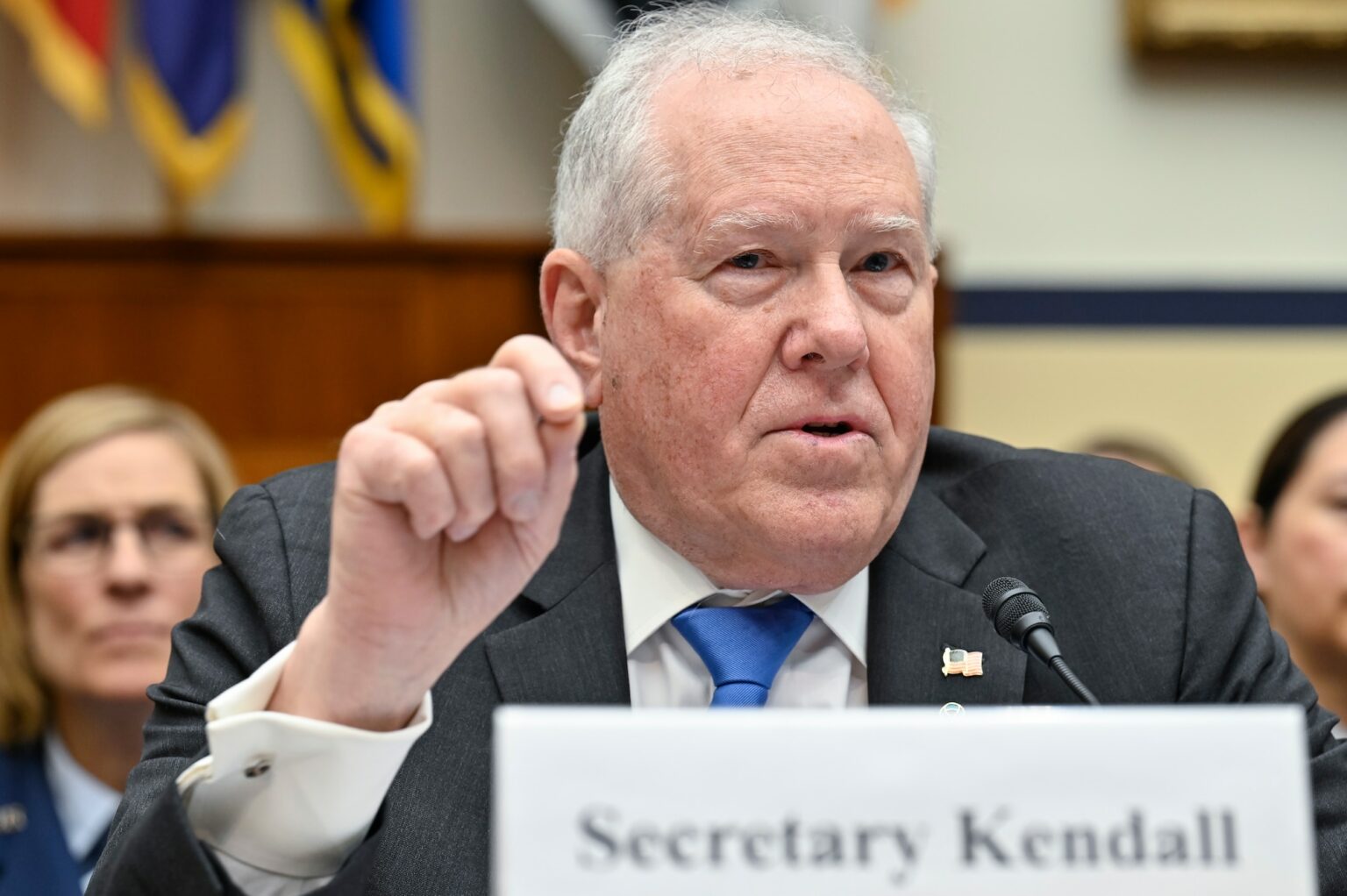Department of the Air Force Secretary Frank Kendall and other top military leaders emphasized the urgent need for modernization in the Air Force and Space Force during a House committee meeting on April 17. They stressed the importance of Congress providing timely and predictable funding to adequately defend the nation against modern adversaries. Kendall highlighted the impact of the six-month delay in finalizing the current year’s budget, stating that time is of the essence in the race for military technological superiority.
Kendall used Iran’s recent attack on Israel with ballistic missiles, drones, and cruise missiles to illustrate the highly contested environment faced by the United States in competition with China. He emphasized the need for the Air Force and Space Force to move away from legacy systems and invest in modern technologies designed to cope with such threats. The leaders reiterated the importance of modernization to meet China’s military advancements and strategic competition.
The leaders discussed the Department’s $217.5 billion budget request for the 2025 fiscal year, emphasizing the need to adapt to meet the challenges posed by China and other global threats. They highlighted the importance of maximizing readiness, adapting structures, and processes to prevail in an environment of enduring great power competition. Saltzman outlined the Space Force’s plans to leverage commercial space firms and develop new equipment to achieve space superiority and protect vital national security interests.
Lawmakers posed diverse questions during the lengthy hearing, covering topics such as the nuclear deterrent strategy, mission capable rates for fighter jets, diversity and equality programs, and plans for bases in different states. Kendall defended the nuclear triad approach and clarified the Space Force’s position on transitioning Guardsmen to part-time Guardian positions within the Space Force. He emphasized the effectiveness and efficiency of using existing laws to manage part-time personnel, avoiding additional bureaucracy and overhead. The leaders reiterated the critical need for timely funding to support modernization efforts and ensure the readiness of the Air Force and Space Force in the face of evolving threats.









